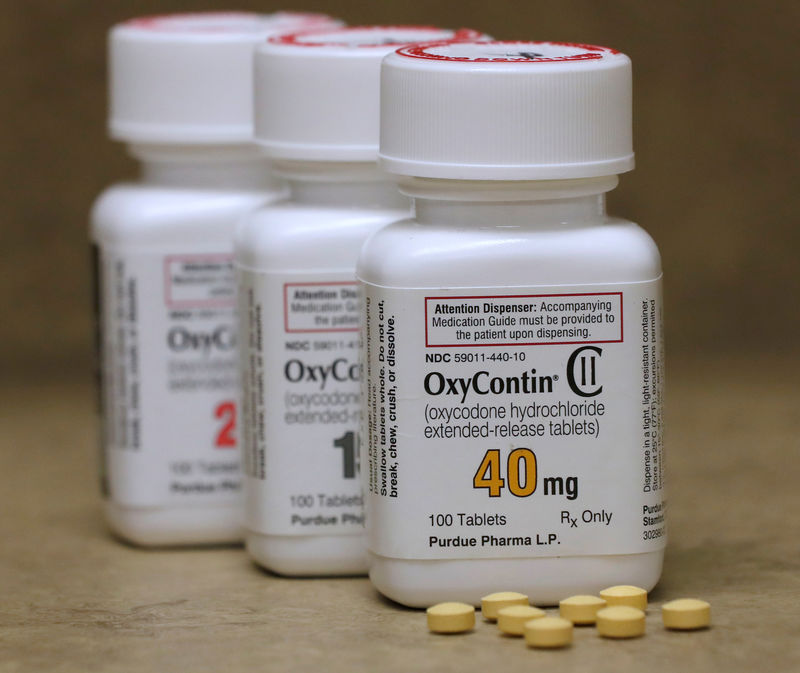By Jonathan Stempel
(Reuters) - Five U.S. states on Thursday filed lawsuits accusing Purdue Pharma LP of illegally marketing and selling opioids, escalating the wave of litigation over a nationwide abuse epidemic.
Iowa, Kansas, Maryland, West Virginia and Wisconsin joined 39 states to file lawsuits targeting Purdue Pharma and its leaders, including former president Richard Sackler and his family.
Officials accused Purdue Pharma of repeatedly making false and deceptive claims that opioids, including OxyContin, were safe for a wide range of patients seeking to reduce pain.
"This is a bipartisan effort," Iowa Attorney General Tom Miller, a Democrat, said on a conference call.
The lawsuits were announced six days after a North Dakota judge dismissed that state's lawsuit accusing Purdue Pharma of overstating the benefits and trivializing the addiction risks of prolonged opioid use. North Dakota is expected to appeal.
Purdue Pharma called the new lawsuits "misleading attacks," and said it will defend itself against them.
"These complaints are part of a continuing effort to try these cases in the court of public opinion rather than the justice system," the Stamford, Connecticut-based company said.
Opioids, including prescription painkillers and heroin, played a role in a record 47,600 U.S. overdose deaths in 2017, the U.S. Centers for Disease Control and Prevention has said.
State and local governments have filed hundreds of lawsuits accusing drugmakers such as Purdue Pharma of deceptive marketing, and distributors such as AmerisourceBergen (NYSE:ABC) Corp, Cardinal Health Inc (NYSE:CAH) and McKesson Corp (NYSE:MCK) of ignoring how opioids were being used illegally.
Oklahoma reached a $270 million settlement with Purdue Pharma and the Sacklers on March 26.
The prospect that Purdue Pharma might eventually seek bankruptcy protection is a reason that Sackler family members have been named as defendants in some lawsuits.
On the conference call, Maryland Attorney General Brian Frosh said the family has "left a trail of addiction and death."
In the North Dakota case, Bismarck-based Judge James Hill rejected the state's argument that Purdue Pharma's conduct created a public nuisance.
"Purdue cannot control how doctors prescribe its products and it certainly cannot control how individual patients use and respond to its products, regardless of any warning or instruction Purdue may give," Hill wrote.
The Sacklers have long been prolific cultural benefactors, but their alleged role in the opioid crisis has led some major museums to distance themselves.

On Wednesday, New York's Metropolitan Museum of Art, whose Sackler Wing contains the popular Temple of Dendur, said it would stop accepting donations from the Sacklers.